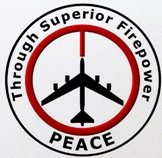That is the title of the article from the Middle East Forum:
David Wurmser is a specialist on the Middle East and served as an advisor to Vice President Dick Cheney until recently. His prior positions included special assistant to John R. Bolton at the Department of State and a fellow at the American Enterprise Institute. Wurmser is the author of numerous influential papers and three books, including Tyranny's Ally: America's Failure to Defeat Saddam Hussein (AEI Press, 1999). In 2000, he contributed to the Middle East Forum's Lebanon Study Group report, "Ending Syria's Occupation of Lebanon: The U.S. Role," which condemned Syria's occupation of Lebanon. He received a Ph.D. in international relations from Johns Hopkins University. Mr. Wurmser addressed the Middle East Forum on March 6, 2008 in New York City.
"Iran's Stake in the Levant"
Mr. Wurmser calls Lebanon a "key battleground between the West as a whole and the forces that seek to drag the Middle East down." The situation in Lebanon must be viewed in the context of the larger conflict in the region, which is becoming far more dangerous. Two years after the Cedar Revolution in March 2005, which was brought on by the assassination of Lebanese prime minister Rafik Hariri, the Lebanese are still living through a tragedy. The inability to install a new president today is indicative of the situation. It is because of the size and success of the popular demonstrations by the Lebanese, however, that Lebanon has become the focal point of the enemies of the West, namely Iran, Syria, and Hezbollah.
Mr. Wurmser focused on the Iranian strategy toward Lebanon, arguing that Iran is undergoing a transformation, not in the direction of reform as the West hopes, but from a pure theocracy toward a "theofascist state on the edge of an even more aggressive foreign policy." This transformation in Iranian politics, according to Mr. Wurmser, is being played out in Lebanon and in Gaza.
Top American officials have made statements to the effect that U.S. and U.N. sanctions have hurt the Iranian regime, and that the support for former president Akbar Hashemi Rafsanjani and other figures deemed "moderate" in the December 2006 elections indicated the weakening of the Iranian regime. Mr. Wurmser asserts that this perception is false because it ignores the real indicators. Rather, a new power structure is emerging in Iran that is closely aligned with President Mahmoud Ahmadinejad. For example, Ahmadinejad fired many government officials and replaced them with a group of hard-core members of the Islamic Revolutionary Guard Corps (IRGC). Mr. Wurmser singled out Gholam Hossein Mohseni-Ejehei, whom Ahmadinejad placed in control of Intelligence, who espouses an aggressive anti-Western foreign policy and supports terrorism; and Saeed Jalili, whom Ahmadinejad appointed as head nuclear negotiator for Iran, is a veteran of the IRGC who was mutilated in the Iran-Iraq war.
Mr. Wurmser traced several of Ahmadinejad's actions to Jalili's 1990 book, Foreign Policy of the Prophet, arguing that Jalili's writings, though they describe the time of Muhammad, are a blueprint for Iran today. Jalili cites an episode in which Muhammad told his followers to proselytize, not negotiate. In this spirit, Ahmedinejad has fired ambassadors and replaced them with more proselytizing ones. Jalili wrote about how Muhammad and his successors sent letters out to other tribes telling them to "convert or you will face the sword," as well as to major powers in Byzantium and Persia. Mr. Wurmser linked this to Ahmedinejad's sending similar letters to President Bush. He pointed out how the "language is lifted straight out of Jalili's book, and that, in fact, "Jalili is the mind behind Ahmedinejad."
Read it all. It's important.
Powered by Qumana

















No comments:
Post a Comment